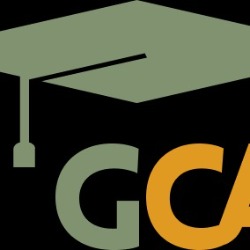An electrician course is designed to equip individuals with the fundamental knowledge and practical skills necessary to work effectively in the electrical trade. Typically spanning from several months to a couple of years, these courses cover a wide range of topics essential for understanding electrical systems and their applications. Students learn about electrical theory, circuitry, wiring methods, and safety protocols in both residential and commercial settings.
Module 1: Introduction to Electrical Work
Lesson 1.1: Overview of the Electrical Trade
- Introduction to the role of an electrician.
- Types of electricians (residential, commercial, industrial).
- Overview of the course and objectives.
Lesson 1.2: Basic Electrical Theory
- Understanding electricity: Voltage, current, resistance.
- Ohm’s Law and basic electrical calculations.
- Introduction to AC and DC currents.
Lesson 1.3: Electrical Safety
- Importance of electrical safety.
- Personal protective equipment (PPE).
- Safety procedures and regulations (OSHA guidelines).
- Identifying and mitigating electrical hazards.
Module 2: Tools and Materials
Lesson 2.1: Essential Tools for Electricians
- Overview of basic and advanced tools.
- Proper use and maintenance of tools.
- Tool safety tips.
Lesson 2.2: Electrical Materials and Components
- Types of wires and cables.
- Common electrical components (switches, outlets, breakers, etc.).
- Understanding and interpreting electrical symbols and diagrams.
Module 3: Basic Electrical Skills
Lesson 3.1: Wiring Basics
- Wire types and their applications.
- Stripping, splicing, and connecting wires.
- Using wire nuts and other connectors.
Lesson 3.2: Installing Circuits
- Planning and designing simple circuits.
- Installing lighting and outlet circuits.
- Understanding circuit breakers and fuse panels.
Lesson 3.3: Electrical Testing and Troubleshooting
- Using multimeters and other testing equipment.
- Identifying and fixing common electrical issues.
- Troubleshooting techniques and best practices.
Lesson 3.4: Introduction to Conduit Bending
- Types of conduits and their uses.
- Basic conduit bending techniques.
- Practical exercises in conduit bending.
Module 4: Advanced Electrical Skills
Lesson 4.1: Residential Electrical Systems
- Overview of residential wiring systems.
- Installing and upgrading electrical panels.
- Code compliance and best practices.
Lesson 4.2: Commercial Electrical Systems
- Overview of commercial electrical work.
- Differences between residential and commercial systems.
- Working with three-phase power and commercial panels.
Lesson 4.3: Motor Controls and Industrial Wiring
- Basics of motor control circuits.
- Working with relays, contactors, and motor starters.
- Introduction to industrial wiring systems.
Lesson 4.4: Programmable Logic Controllers (PLCs)
- Introduction to PLCs and their applications.
- Basic programming and troubleshooting of PLCs.
- Hands-on exercises with PLC simulators.
Lesson 4.5: Renewable Energy Systems
- Basics of solar and wind power systems.
- Installation and maintenance of renewable energy systems.
- Understanding grid-tied and off-grid systems.
Module 5: Practical Experience and Projects
Lesson 5.1: Hands-on Wiring Projects
- Practical exercises in wiring and installation.
- Simulated real-world scenarios and troubleshooting.
Lesson 5.2: Electrical Panel Installation
- Installing and wiring an electrical panel.
- Ensuring code compliance and safety.
Lesson 5.3: Mock Job Site and Final Project
- Simulated job site experience.
- Final project: Planning and executing a comprehensive electrical installation.
- Presentation and evaluation of the final project.
Additional Resources
- Recommended readings and online tutorials.
- Access to practice materials and tools.
- Community forums and support groups.
Assessment and Certification
- Periodic quizzes and assignments.
- Final practical exam and project evaluation.
- Certification of completion upon meeting course requirements.
This curriculum aims to provide a thorough education in electrical work, from foundational knowledge to advanced skills, ensuring students are well-prepared for a career as an electrician.




